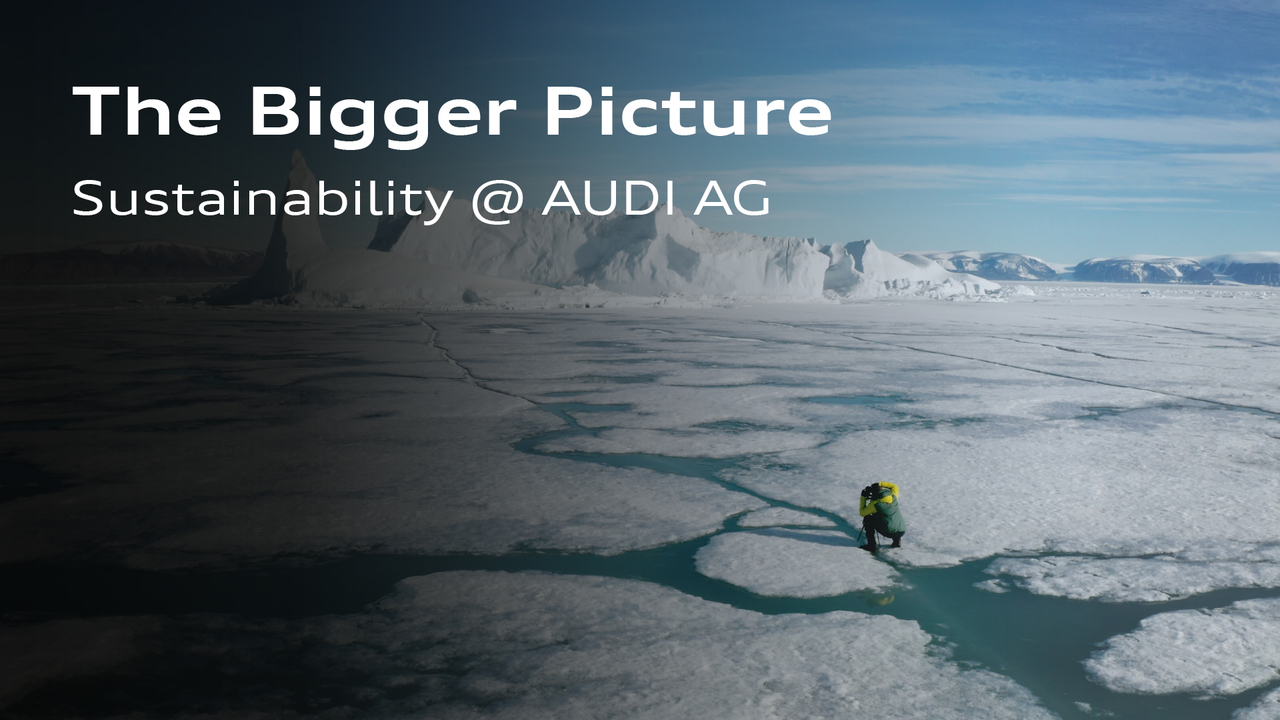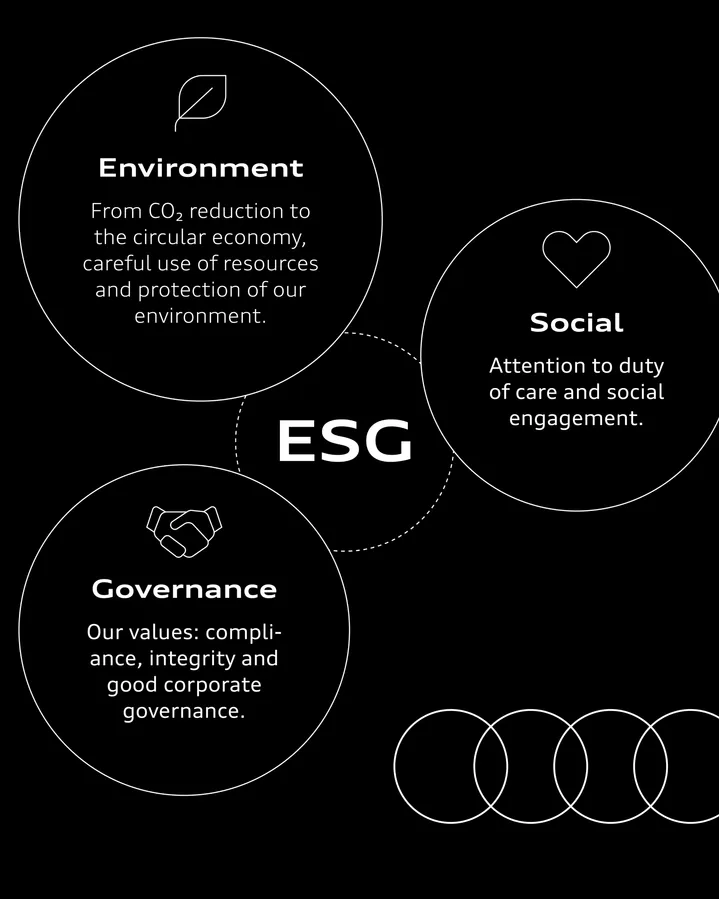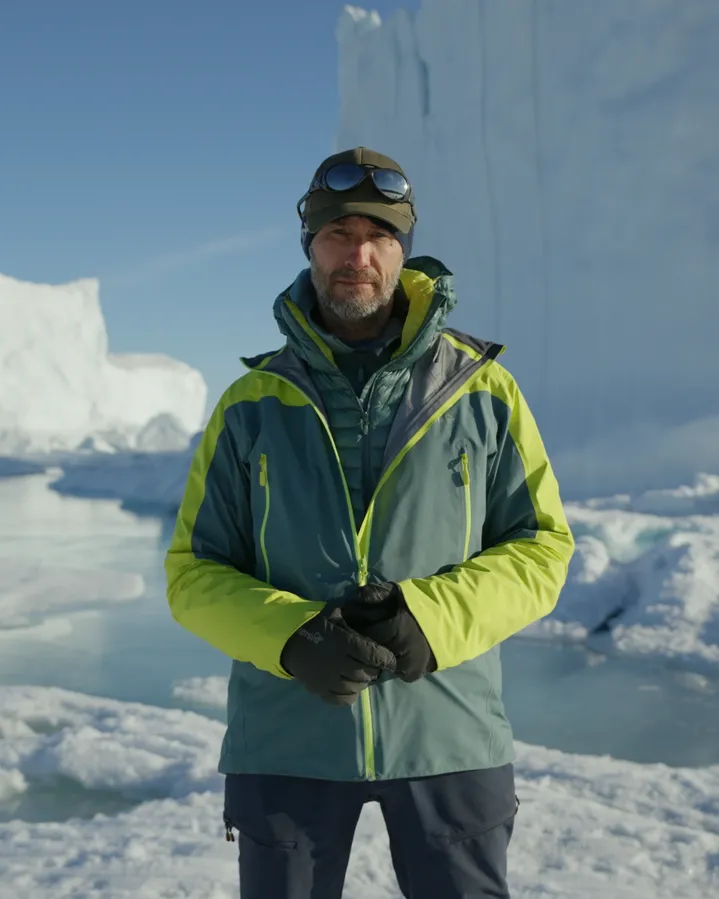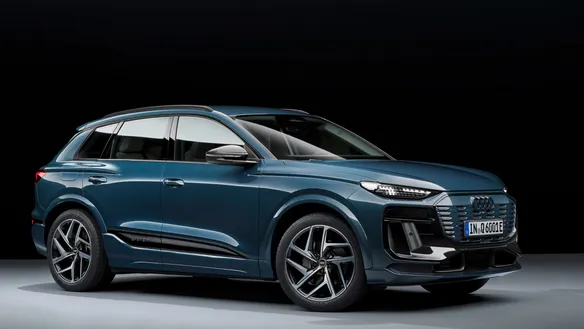Responsibility for the future

Sebastian Copeland is convinced that the two key drivers for our future are science and technology, which provide solutions. For over 25 years, the Englishman has been committed to climate protection. He is a polar explorer and climate analyst, having studied geology and glaciology, among other fields. However, Copeland is also an award-winning photographer and author. The Englishman crossed Greenland and Antarctica and reached the geographic North Pole – on foot. "And every time I return to these places, to the Arctic or Antarctic, I see the accompanying effects and impacts of human actions," he explains.
Sebastian Copeland has had a long-standing collaboration with Audi, which now continues in a nine-part series. In "The Bigger Picture: Sustainability @ AUDI AG", the researcher invites viewers to take a deep look into the inner workings of an automotive company like Audi. This special expedition takes him to various important Audi locations and allows him to meet with interdisciplinary Audi experts, with whom he discusses the crucial topics for ecological and social sustainability. "In this series on environment, social issues, and responsible corporate governance, or ESG, we will delve deeply into what could make a difference," summarizes Sebastian Copeland.
“In this series we will delve deeply into what could make a difference.”

Sebastian Copeland travels to various corporate locations of Audi and speaks with employees about electrification, circular economy, data protection, as well as human rights and social engagement - ESG criteria that shape Audi's actions.
Join Sebastian Copeland in "The Bigger Picture: Sustainability @ AUDI AG" in the coming days and weeks on a special expedition and discover how Audi lives up to the criteria for ecological and social sustainability as one of the central guiding principles of its corporate governance.
Join Sebastian Copeland in "The Bigger Picture: Sustainability @ AUDI AG" in the coming days and weeks on a special expedition and discover how Audi lives up to the criteria for ecological and social sustainability as one of the central guiding principles of its corporate governance.
The Bigger Picture: Sustainability @ AUDI AG
¹Audi defines net carbon neutrality as a status where, despite having exploited other possible reduction measures in relation to CO2 emissions caused by our products or activities, remaining and/or currently unavoidable CO2 emissions in connection with the supply chain, manufacturing or recycling of our vehicles are, at least in terms of quantity, offset by voluntary compensation projects worldwide. CO2 emissions generated during the operational phase of a vehicle (i.e. as of the time the vehicle is handed over to the customer) are not taken into account.
¹Audi defines net carbon neutrality as a status where, despite having exploited other possible reduction measures in relation to CO2 emissions caused by our products or activities, remaining and/or currently unavoidable CO2 emissions in connection with the supply chain, manufacturing or recycling of our vehicles are, at least in terms of quantity, offset by voluntary compensation projects worldwide. CO2 emissions generated during the operational phase of a vehicle (i.e. as of the time the vehicle is handed over to the customer) are not taken into account.






